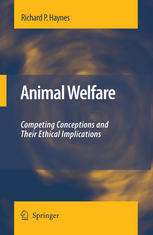

Most ebook files are in PDF format, so you can easily read them using various software such as Foxit Reader or directly on the Google Chrome browser.
Some ebook files are released by publishers in other formats such as .awz, .mobi, .epub, .fb2, etc. You may need to install specific software to read these formats on mobile/PC, such as Calibre.
Please read the tutorial at this link: https://ebookbell.com/faq
We offer FREE conversion to the popular formats you request; however, this may take some time. Therefore, right after payment, please email us, and we will try to provide the service as quickly as possible.
For some exceptional file formats or broken links (if any), please refrain from opening any disputes. Instead, email us first, and we will try to assist within a maximum of 6 hours.
EbookBell Team

4.3
88 reviewsMembers of the “animal welfare science community”, which includes both scientists and philosophers, have illegitimately appropriated the concept of animal welfare by claiming to have given a scientific account of it that is more objectively valid than the more “sentimental” account given by animal liberationists. This strategy has been used to argue for merely limited reform in the use of animals. This strategy was initially employed as a way of “sympathetically” responding to the abolitionist claims of anti-vivisectionists, who objected to the use of animals in research. It was subsequently used by farm animal scientists.
The primarily reformist (as opposed to abolitionist) goals of this community make the false assumption that there are conditions under which animals may be raised and slaughtered for food or used as models in scientific research that are ethically acceptable. The tendency of the animal welfare science community is to accept this assumption as their framework of inquiry, and thus to discount certain practices as harmful to the interests of the animals that they affect. For example, animal welfare is conceptualized is such a way that death does not count as harmful to the interests of animal, nor prolonged life a benefit.